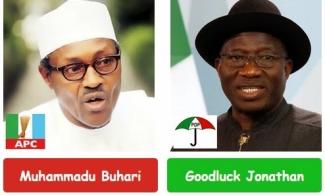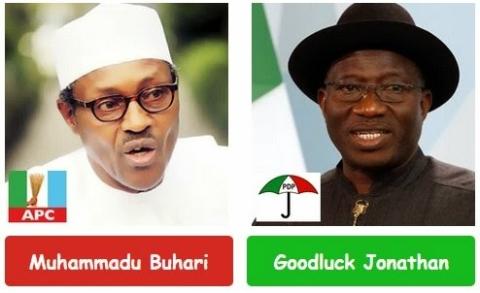
The facts speak for themselves. Despite enviable human and natural resources Nigeria has been a nation on the decline for many years. Africa’s Big Brother had been in relative socio-economic stagnation even before Jonathan got his turn at leading the country.

There comes a time when a politician must put personal ambition aside, and step down for the good of a nation. When this happens it is not a sign of defeat, but rather acknowledgement that given certain circumstances a new direction was needed.
That’s why President Goodluck Jonathan must quietly leave the Presidency. But, Mr. President has chosen to stay and fight for a second term. So it is now up to all Nigerians to make the right decision for the nation at the poll booths.
The Economic Well Has Dried Up
The facts speak for themselves. Despite enviable human and natural resources Nigeria has been a nation on the decline for many years. Africa’s Big Brother had been in relative socio-economic stagnation even before Jonathan got his turn at leading the country.
I don't fault President Jonathan for not changing Nigeria's economic fortunes overnight. There may not be anybody capable of doing that given the decades of institutional decay.
But, I do fault the President for failing to build up Nigeria's foreign reserves during the years of historically-high oil prices like many gulf oil-producing countries have done. As we have witnessed, Nigeria’s foreign reserves now stands only at about $30 billion after the government was forced to use most of its woefully inadequate foreign reserves towards stabilizing the free-falling naira—a situation only worsened by the postponement of Nigeria’s elections—apparently due to insecurity.
This is perhaps President Jonathan’s gravest failure at safeguarding the future of Nigerians as oil exports, which previously accounted for over 90 percent of revenues, will continue to fall as important oil importing nations like United States have become self-reliant over night with the advent of cheaper technologies in shale oil production.
Some, like petroleum minister Alison Madueke, suggest that the currently lower than desirable international market price of oil provides an opportunity to pursue greater efficiency in domestic oil production processes. But, such optimism cannot overshadow the glaring realities of painful austerity measures that will affect all government development programs in the foreseeable future.
It is not difficult to see that President Jonathan’s re-election campaign’s “transformation” agenda is little more than hot air given that many development projects will have to be shelved with the nation's depleting treasury accounts and gloomy prospects for new revenue streams—at least in the near future. Regrettably, this new economic reality applies to any presidential candidate who emerges victorious after the March 28 Nigeria presidential elections.
The Boko Haram situation is another catastrophic development during President Jonathan's tenure in office for which he cannot be absolved. This homegrown terrorist franchise has matured under the incumbent’s watch, from what many had previously considered as a bunch of rag tag individuals wielding machetes, to the well-funded force capable of holding its ground against Nigeria’s armed forces.
Even if you consider the conspiracy theory that President Jonathan allowed the group to fester in northern Nigeria—as a means to depress the potential vote counts for Fmr. Gen. Muhammadu Buhari’s natural constituency—that strategy has backfired as the crises has further eroded confidence in his ability to govern the Nigerian nation.
Yes, we have seen the Nigerian military begin to record a number of victories against Boko Haram with the help of neighboring countries like Chad, Niger and Cameroon. But, it has taken the postponement of elections, significant damage to the nation's democratic credentials, and significant blows to the image of Nigeria’s armed forces.
Why does any of this concern me as a Ghanaian who has never visited Nigeria? Ghana too has very poor Muslim community strongholds in northern Ghana, living amidst the kinds of conditions that allowed the Boko ideology to take hold in northern Nigeria.
So, Mr. President, leave today so that Muhammadu Buhari or somebody else may try to salvage the great Nigerian nation tomorrow. The whole of West Africa—and perhaps all of Africa—cannot accommodate another four years of business as usual in Nigeria.
Sami Disu is an Africa Affairs political analyst. Follow him on Twitter:@disusami